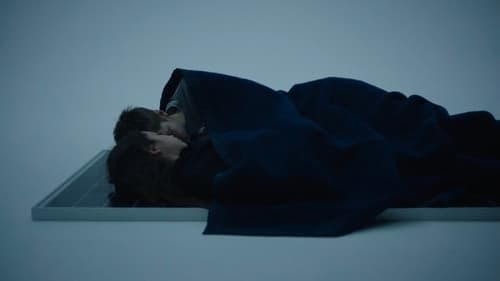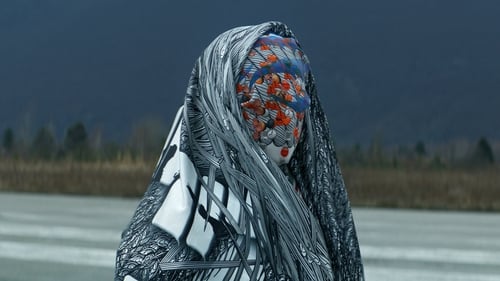
Writer
Entangled and haunting, the cyclic poem Chaos Theory focuses on children, parents, and attachment. X (Valentina Di Mondo), the child, is adventurous and associative. The adult, Y/Z (Georgina Dávid/Lucie de Bréchard), appears pensive, yet ever as dedicated to nurturing X.

Director
Entangled and haunting, the cyclic poem Chaos Theory focuses on children, parents, and attachment. X (Valentina Di Mondo), the child, is adventurous and associative. The adult, Y/Z (Georgina Dávid/Lucie de Bréchard), appears pensive, yet ever as dedicated to nurturing X.

Screenplay
Assembling cinematic sequences shot in the Southeastern Urals and in Macedonia, archival footage and animation, Eurasia (Questions on Happiness) sets forth on a journey towards the Eurasian steppe where it meets the New Silk Road. Imagining a fractured continent in the thrall of self-learning data sites that trigger world events, the film confronts various forms of hoax, from cut and paste political doctrines to neo-classical facade architectures. Mapping ideological and political currents that are presently unraveling the European Union, Eurasia describes fake news as a man-made proxy of the indifference that an artificial intelligence may feel toward the human condition. Through modes of science fiction, documentary, and folk tale, Eurasia creates an immersion within layers of media production, wrapping facts in fictions, and fictions in facts.

Director
Assembling cinematic sequences shot in the Southeastern Urals and in Macedonia, archival footage and animation, Eurasia (Questions on Happiness) sets forth on a journey towards the Eurasian steppe where it meets the New Silk Road. Imagining a fractured continent in the thrall of self-learning data sites that trigger world events, the film confronts various forms of hoax, from cut and paste political doctrines to neo-classical facade architectures. Mapping ideological and political currents that are presently unraveling the European Union, Eurasia describes fake news as a man-made proxy of the indifference that an artificial intelligence may feel toward the human condition. Through modes of science fiction, documentary, and folk tale, Eurasia creates an immersion within layers of media production, wrapping facts in fictions, and fictions in facts.

Editor
This rich essay searches for new ways of being together in the age of social media. We arrange our lives to impress the gaze of others and have become accustomed to being seen. For many young people, however, the party is over. Neoliberalism has made murderous competition the norm; and in the meantime, the planet is dying. Following the unmasking of Facebook’s real motives, more and more people are deleting their Facebook accounts – but this often results in social death. The first image in POSSESSED sets the tone: liquefied lead runs over burning smartphones, followed by images of a devastated neighbourhood in Aleppo. Even the smartphones have not survived the attack. The chains of social media must be cast off, but the perpetual question remains: Who is looking out for you? Academics Alex Williams (University of East Anglia) and Nick Srnicek (King's College London) address this crucial question, along with other issues

Writer
This rich essay searches for new ways of being together in the age of social media. We arrange our lives to impress the gaze of others and have become accustomed to being seen. For many young people, however, the party is over. Neoliberalism has made murderous competition the norm; and in the meantime, the planet is dying. Following the unmasking of Facebook’s real motives, more and more people are deleting their Facebook accounts – but this often results in social death. The first image in POSSESSED sets the tone: liquefied lead runs over burning smartphones, followed by images of a devastated neighbourhood in Aleppo. Even the smartphones have not survived the attack. The chains of social media must be cast off, but the perpetual question remains: Who is looking out for you? Academics Alex Williams (University of East Anglia) and Nick Srnicek (King's College London) address this crucial question, along with other issues

Director
This rich essay searches for new ways of being together in the age of social media. We arrange our lives to impress the gaze of others and have become accustomed to being seen. For many young people, however, the party is over. Neoliberalism has made murderous competition the norm; and in the meantime, the planet is dying. Following the unmasking of Facebook’s real motives, more and more people are deleting their Facebook accounts – but this often results in social death. The first image in POSSESSED sets the tone: liquefied lead runs over burning smartphones, followed by images of a devastated neighbourhood in Aleppo. Even the smartphones have not survived the attack. The chains of social media must be cast off, but the perpetual question remains: Who is looking out for you? Academics Alex Williams (University of East Anglia) and Nick Srnicek (King's College London) address this crucial question, along with other issues

Director
A poetic psychodrama about vr combining live action and animation. The film is a sequel to Metahaven’s film project “The Sprawl (Propaganda About Propaganda).” Released online at informationskies.com, it's overlaid with subtitles in different languages, and with interfacial ruins that are distinct for the online environment.

Director
This documentary by the Dutch design and research studio Metahaven emphatically argues that the Internet has become a disruptive geopolitical super weapon. The Sprawl is potent propaganda about propaganda, an unbroken digital scream and a paranoid trip of ones and zeroes.

Director
Capture is loosely structured around three connected research fields, and weaves together images of lichen filmed in the forests outside Trondheim, video material from the huge film archive of CERN (the Inter-European Facility for Particle and Nuclear Physics) outside Geneva, as well as bats.









